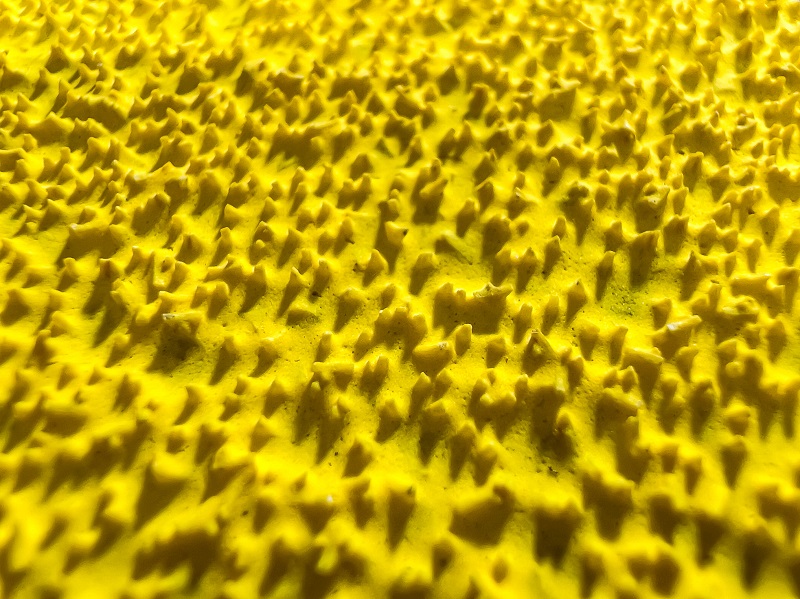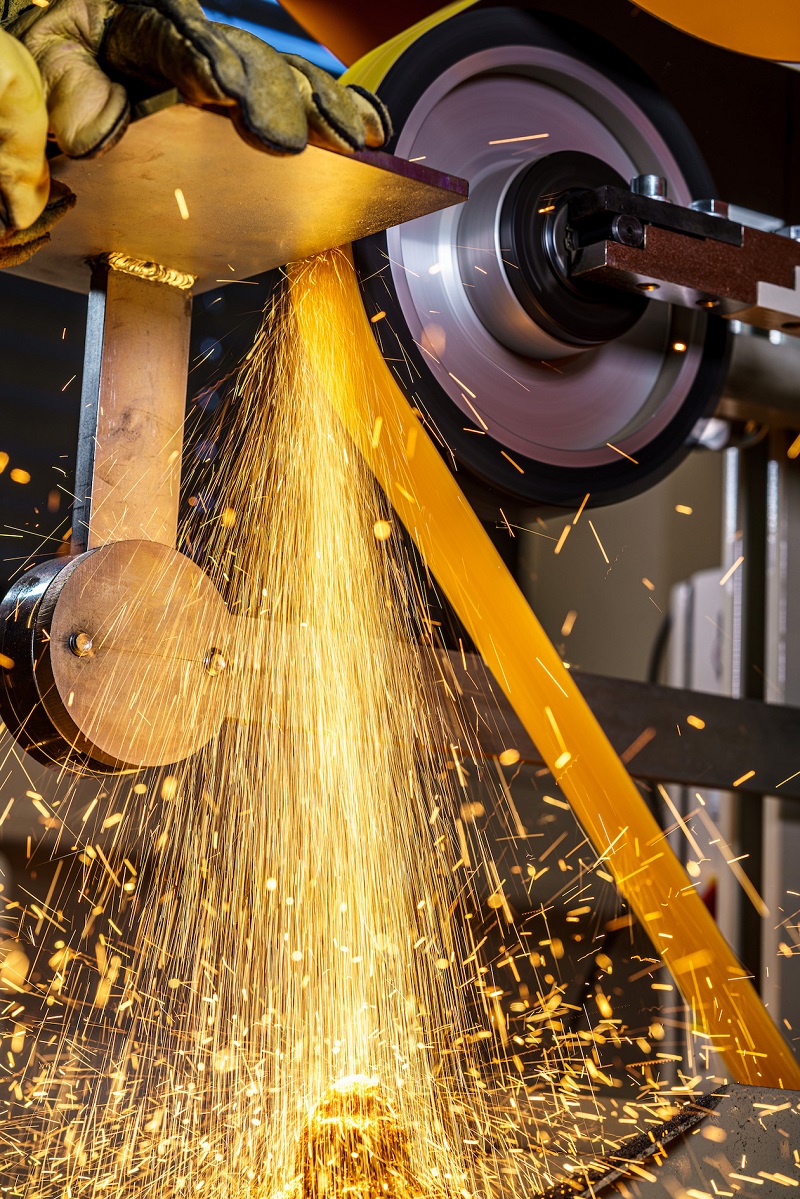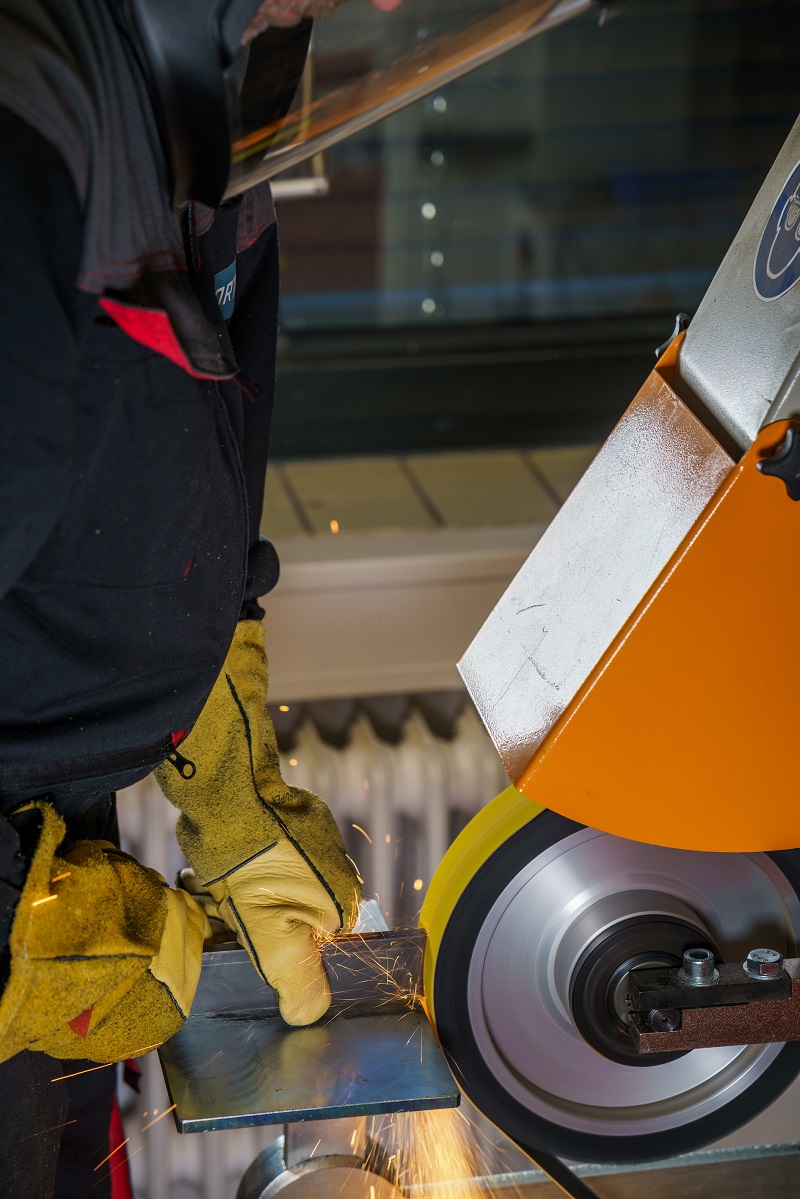Norton Introduces RazorStar® Belts and Fibre Discs

Norton introduces its latest abrasive innovation to its portfolio: RazorStar®. Made with 100% precision-engineered shaped ceramic grain, Norton RazorStar® abrasive belts and fibre discs redefine metal grinding, preparation, bevelling, and deburring applications across various industries, including fabrication, general engineering, foundry, construction, rail, aerospace, medical, and automotive.
The cutting-edge belts and fibre discs have unbeatable grinding performance, increased efficiencies, and lower operating costs for users.
Unique Grain Shape and Orientation
RazorStar® performs in manual and machine-assisted or fully robotic grinding operations, particularly medium to high-pressure metal removal applications. The grain’s unique shape consists of two linear regions joining to form razor-sharp tips. Each grain fractures into similar sharp profiles during grinding to consistently produce uniform shapes, which ensures a high initial cut and continued performance throughout the product life.
The exceptional performance of RazorStar® is thanks to a patent-pending method that positions more grains in an upright position compared to other ceramic products, meaning more grains are primed and ready to cut. This is further complimented with a topsize layer that acts as a cooling lubricant to reduce heat generation significantly, and a heavy-weight backing, which promotes grain retention and the self-sharpening fracture process. The results speak for themselves with no discolouration, no need for rework, and a burn-free result every time.
Product Trials
RazorStar® belts cut faster and remove more material, reducing machine time and energy consumption by up to 20% on stainless steel and 34% on carbon steel, compared to other ceramic-shaped grains*. This contributes to the belt’s durability and long life in high-pressure grinding applications, reducing belt waste by up to 57% on stainless steel and up to 74% on carbon steel*.
Jean-Marie Vallerot, Director of Product Management at Saint-Gobain Abrasives, elaborates on RazorStar® unique features: “RazorStar® belts utilise 100% of our new precision-engineered shaped ceramic grain. The patent-pending method of applying the grain to the backing ensures the grains are positioned upright, maximising cut-rate, extending product life, and minimising thermal damage to workpieces.”
The outstanding cut rate of RazorStar® fibre discs improves stock removal by up to 50% on carbon steel during bevelling applications using a low-powered angle grinder, compared to other ceramic-shaped grains*. During trials with a 1900-watt high-powered angle grinder, stock removal improved by 93% and the cut-rate improved by 44% on carbon steel*. Operators also reported the fibre disc being smoother and easier to use, providing a much more comfortable experience.
Emre Ulbay, MRO Channel Manager EMEA, further explains: “In internal and external trials, we’ve observed a significant increase in productivity attributed to the extended lifespan and enhanced sharpness of our RazorStar® F990S fibre discs. They consistently outperform all conventional ceramic discs on the market, allowing us to demonstrate to our customers how they can achieve higher output with fewer discs, ultimately saving time and money in their operations.”
Versatility
Norton RazorStar® products can be used on many materials, including stainless steel, Duplex and exotic alloys, carbon steel, cast iron, non-ferrous metals, high nickel superalloys, and titanium alloys. Industry standard-sized belt sizes are available, and custom dimensions are available upon request. Fibre discs are available in typical diameters, including 115mm, 125mm and 180mm.
To learn more about what Norton RazorStar® range can offer, visit www.nortonabrasives.com/en-gb/razorstar, contact your local Sales Representative or call 01785 279553. The products will also be showcased at TMB 2024 on 21st March.
*These results depend on exact test conditions (pressure, workpiece dimensions, operating speeds). Evaluation is based on 11 different test protocols representative of our customers’ applications.




